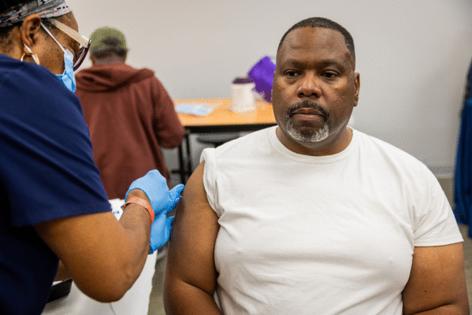Flu activity increasing in Illinois, driving state back up to high levels of respiratory illness
Published in News & Features
After a short reprieve earlier this month, respiratory illness levels have again moved from moderate to high in Illinois, with the flu driving much of the increase, according to the state health department.
There was a “notable” increase in emergency department visits and hospital admissions for the flu during the week that ended Jan. 25, according to the Illinois Department of Public Health. In Chicago, flu activity increased from high to very high during the same week, according to the Chicago Department of Public Health.
Statewide, the percentage of hospital admissions due to the flu grew to 4.6% during that week, surpassing a peak of 3.3% last flu season. About 7.8% of emergency department visits were due to the flu (up from a peak of 5% last flu season), and 24.5% of flu tests during the week were positive, according to the state health department.
So far this season, five children in Illinois have died of the flu.
“Flu continues to circulate widely across Illinois,” said Dr. Sameer Vohra, director of the Illinois Department of Public Health, in a news release. “I recommend that all those over 65, very young children, individuals with chronic disease, and those who are immunocompromised, use all the tools at their disposal to prevent exposure.”
Doctors say it’s not too late to get flu vaccines for those who haven’t done so. It takes about two weeks for vaccines to take full effect. Prescription antiviral medications for the flu are most effective if they’re taken within 48 hours of developing symptoms.
Meanwhile, another common ailment, respiratory syncytial virus, or RSV, may be abating. The percentage of hospital admissions that were due to RSV, statewide, fell slightly for the week that ended Jan. 25. The Chicago Department of Public Health noted in its most recent report that emergency department visits, hospitalizations and intensive care unit admissions for RSV “continue to decrease and are likely past peak for the season.”
Most people with RSV develop mild, cold-like symptoms and recover in a week or two, but babies and older adults can develop more severe cases.
The state’s overall respiratory illness level moved from moderate to high in late December, and then dipped back to moderate in January, before bouncing back to high for the week that ended Jan. 25.
During that week, the percentage of hospital admissions due to COVID-19 fell slightly statewide. In Chicago, COVID-19 activity increased from low to moderate.
_____
©2025 Chicago Tribune. Visit chicagotribune.com. Distributed by Tribune Content Agency, LLC.







Comments